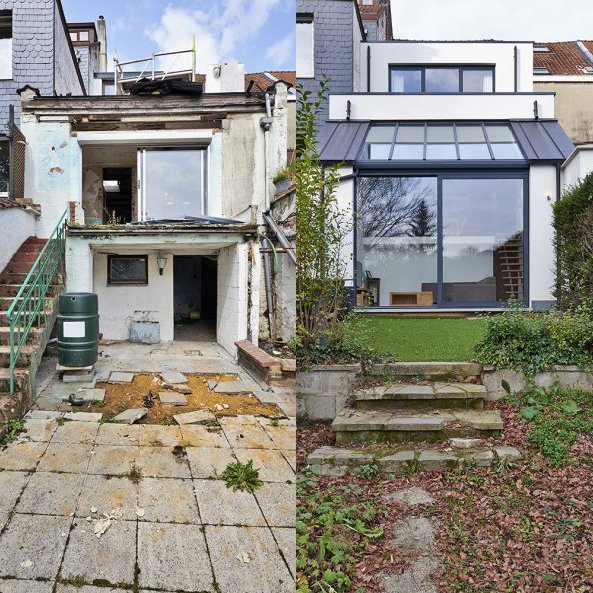
What Is Property Development and How Do I Do It?
Property developing is the process of buying sites, houses, apartments or other buildings, building on them or renovating them and then selling them for a profit. When it’s a remodelling project on an old building, it’s also known as flipping houses and some types of property developers are colloquially called house flippers.
Most people start out as amateur property developers with their permanent, full-time jobs offering assurance to mortgage lenders that the developer can pay back any money they borrow with which to buy a house to flip. Some house flippers then go on to become full-time property developers with their own portfolios of building and renovation projects taking place at any given time. Others continue developing properties as a fun hobby that also gives them an extra income.
How much does the average property developer make?
You can earn a lot of money from developing property. But only if you’re good at it. Like any business that requires speculation, there’s a high amount of risk involved. And not every property that is developed makes money – professional property developers will make lots of money on some projects, break even on others and even lose money on other developments.
Large property development companies might invest tens of millions of pounds to develop a property while hobbyist property developers might only invest tens of thousands. The return on investment, then, is largely dependent on the amount invested. Whichever the case, good property development is a case of good risk assessment and risk management.
A successful property developer should expect to earn around a 35% gross margin (before taxes, in other words) on each property sold as an average. This, as we say, can fluctuate dramatically, but is a good target guideline. And, yes, you will have to pay taxes on any developed property you sell, so that will affect your bottom line.
How do I become a property developer?
Becoming a property developer isn’t just a case of buying a site and then building on it or buying a house and then renovating it. You have to do your risk assessment before you even put an offer in. This means knowing:
- How much the most expensive and least expensive neighbouring buildings sold for in recent months
- The current market conditions and if you can expect to the kind of profit you’d like to make, i.e. are people buying right now?
- The top amount you should pay for a building in a certain condition in a particular location
- How feasible developing the site or property is – are your ideas architecturally, financially and environmentally viable?
- What planning permission issues you might run into from local authorities based on your ideas
- How much you can expect to spend on materials with which to complete the renovation or build project
- How much you can expect to pay a contractor to work to the standard you require for the finished property
- What the expected turnaround time for the project is and how much that will cost you in terms of manpower – the longer the project takes, the more it will cost
- How much budget you should set aside for contingencies based on the level of risk involved – the greater the ‘unknown quantities’, the greater the contingency funds you will need
- How much extra money you might be able to borrow from a lender if necessary
- What other cashflow options you have available to you
Once you have all this information to hand, you will be in a position to decide whether or not taking on a site or building development is a good idea for you. Not to mention just what type of project and how ambitious you can be.
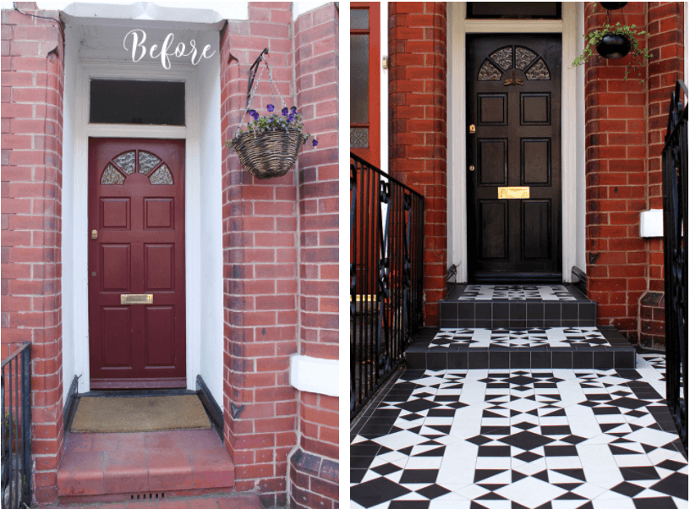
Before / After of the Manchester House by Swoon Worthy
Is flipping houses expensive?
Flipping a house is a great way to start out as a property developer. How much it costs you to do so all depends on how big the house is, where it is located and what condition it’s in when you buy it. Also, how you buy the property: if you buy at auction, you are more likely to find a bargain than buying from a commercial estate agent; and if you buy in cash, there’ll be no interest to pay like there would if you were to take out a mortgage.
The smaller the property you buy, the less you’re going to have to pay for it. So, people starting out as property developers might start out with a flat or a small, structurally sound terraced house in a burgeoning neighbourhood in need of some simple cosmetic updating.
These types of projects won’t necessarily give you big profits but, if done successfully, should still give you a good margin to invest in your next project. And the more money you have to invest, the more ambitious the projects you’ll be able to take on in the future.
Managing your budget is one of the most important things in becoming a successful property developer. This means identifying contractors who will charge you reasonable rates for high standards of work. It also means buying fixtures and fittings that don’t cost too much money but that do have a high aesthetic impact.
This is where analysis of other properties in the area comes in. You are looking to have the best property on the street so that you can bring in the best price – but if the second best building on the street only spent £5,000 on fixtures and fittings, why would you budget £15,000?
One thing is for certain: property development is not an inexpensive thing to get into and will cost you tens of thousands of pounds, minimum, from the very beginning. However, the better you are at it and the more successful developments you roll out, the less you will have to worry about financing.
What is the 70% rule in house flipping?
Quite simply, the 70% rule is the way in which property developers are able to determine the maximum amount they should pay for a building so that it gives them a profitable return on investment. Basically, you should never pay more than 70% of the ARV (after repair value) of the house when you buy it. This does not include the cost of improvements – just the cost of the purchase itself.
How do I identify a good property to flip?
There’s no such thing as the perfect property to flip. Each and every building has its own unique characteristics that will both aid and hinder the development. But there is a simple equation that will help you to find the right kind of building:
You should be looking for the lowest priced property that needs the least amount of money spending on it to bring in the highest possible margin.
A house in a very poor state of repair in well-established neighbourhood that will require a large investment to bring it up to the standards of the rest of the street, but which may not sell for a large amount of money? Not the ideal property.
A house in a burgeoning neighbourhood in a poor state of cosmetic repair, but structurally sound, that will require minimal work to make it stand out far above the other houses on the street and, thus, set a new standard for the neighbourhood and demand a higher price? Well, on paper at least, that seems to make more sense. (But it’s by far from an exact science.)
Auctions are the preferred way for property developers to find houses for flipping simply because they are much cheaper at auction, but they come with a high degree of risk. Once you buy at auction, you are committed to the purchase – you’re not going to be able to back out based on the results of a survey because you won’t have chance to have a survey done before you buy.
So, if you do decide to buy at auction, it’s a good idea to take a contractor along to have a look at the site from the exterior before you put in a bid. (That’s right, you won’t be able to view it from the inside, either.)
The contractor should be able to help you identify any major issues, such as signs of subsidence, poor roof repair or Japanese knotweed. They will also be able to advise you on other risks to look out for, such as visible signs that buildings have been extended (in which case, they would need to have had planning permission) or potential shared access routes that may affect the desirability of a property.
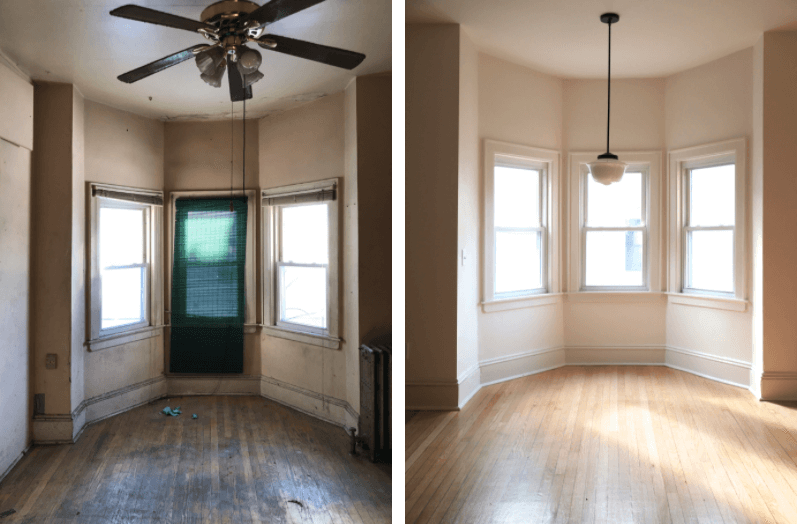
Before / After of the Bayview Barnhouse by Jenni Yolo
Can I flip an office building?
Flipping an office building is a much more ambitious property development project and will usually be carried out by experienced property developers with established contractor and financier relationships. You would be advised to start out on a much smaller project before getting into something so ambitious. However, if you’ve had some success in flipping houses and are ready to take the leap, developing commercial buildings is a route into a much bigger, potentially much more lucrative world of professional property developing.
The same rules for developing houses applies when you are developing commercial buildings or sites. But, as well as factors such as how well the local property market is performing, you also want to be thinking about how the commercial sector in general is performing in the area you are looking to invest in.
The best commercial property developments will occur in burgeoning commercial environments where a buzz is beginning to happen. If a local enterprise has brought significant activity (and media coverage) to an area previously ignored by property developers, it’s a risk but you may be able to establish a broader commercial environment in the neighbourhood by developing a property that attracts new business, keen to piggyback off the success of the local enterprise in question, to the area.
Such buildings (and building sites) can be bought at relatively low prices and can, if sold at the right time, bring in significant returns on investment. However, they can also fail dramatically, if the buzz about the neighbourhood is short-lived or moves elsewhere. Which is why it’s important to have plenty of experience in developing behind you as well as great understanding of how local markets operate.
Who are the most famous property developers?
Some of the world’s biggest property developers have made £billions from investing in sites and buildings for resale. They include the President of the USA himself, Donald Trump, who comes from a family of New York City real estate developers. He has properties right across the globe, including his golf club in Scotland, which caused a great deal of controversy when it was developed. Upon accepting the Presidency, of course, he was required to resign from all managerial roles within the Trump organisation and delegated management to his sons Donald Jr and Eric Trump.
Other big names in the property development world include Linda Ashley who invested her £50m divorce settlement from former Newcastle United manager Mike Ashley into property development and turned it into a whopping £75m. Then there’s Nick and Christian Candy, the billionaire brothers whose luxury developments place them at number 52 in the list of the UK’s richest property developers. Their A-list celebrity status comes from Nick’s marriage to Australian actress and singer Holly Valance.
As well as A-list property developers like those above, there are many famed property developers who made their names in television, helping other people to realise their property development dreams. People like Sarah Beeny in the UK, known for hosting programmes such as Double Your House for Half the Money; Help! My House is Falling Down; and, of course, Property Ladder, the property development show that gave Sarah her start in the television world.
One of Britain’s most celebrated property experts is Kevin McCloud, the host of celebrated luxury property programme Grand Designs, who started HAB Housing Limited (“Happiness, Architecture, Beauty”) in 2007, which, in September 2013, broke the world record for equity crowdfunding by securing investments of more than £1.9m from the public. It’s interesting to note that, in August 2019, it was reported that HAB investors have received no money in return for their investments and potentially face losing 97% of their investment. A cautionary tale, indeed.
Are there any old houses left to flip?
Whilst flipping houses as a dramatic, bold career change may have jumped the shark more than a decade ago, there’s still money to be made from a career in property developing. And there are still plenty of properties to be found. The average homeowner in Britain spends just under 21 years in their home, according to the Daily Mail, so buildings that are ripe for renovation, remodelling and updating are plentiful.
However, the popularity of property developing as a career does mean that competition for older houses in poor repair is higher than ever, so don’t expect the auction houses to have tumbleweed blowing across the floor – they’ll be full of people just like you bidding for their dream house flipping project at a bargain price. You’ll also be operating within a market saturated with local regeneration projects – so houses for sale in those areas will be at a much higher price than they might have been a few years ago, just because homeowners know their potential value to developers.
If you’re ambitious, if your finances are in good shape and if you have a great head for business and the stomach for endless surprises and setbacks, property developing might just be a great route forward for you. It will certainly keep you on your toes and no two days will ever be the same.
Examples of some our favorite flipped houses:
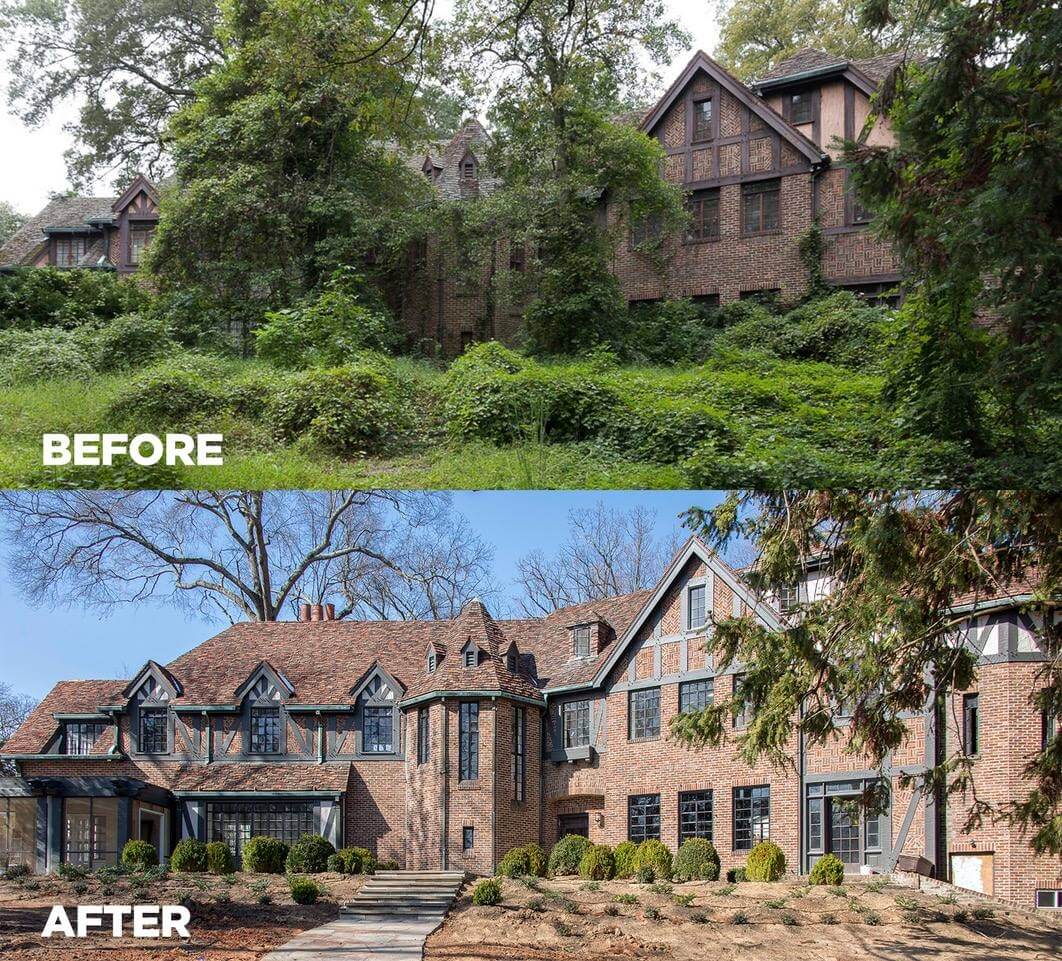
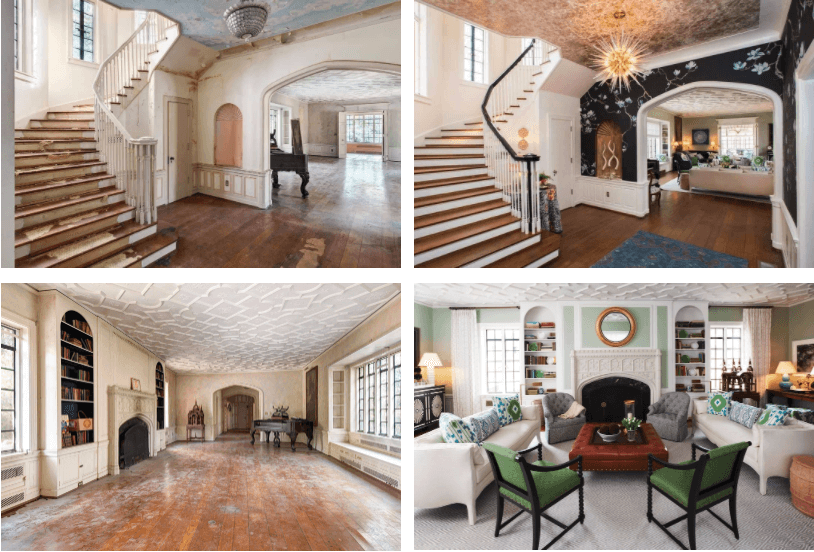
Before / After of the Julian Price House
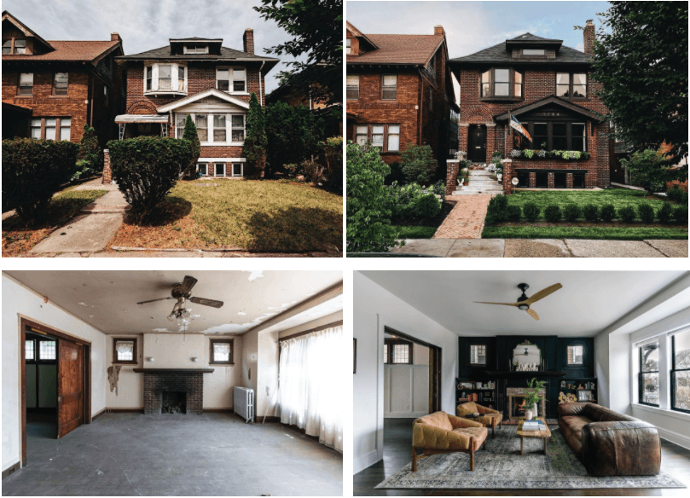
Before / After of a West Village Home by A Green Haus